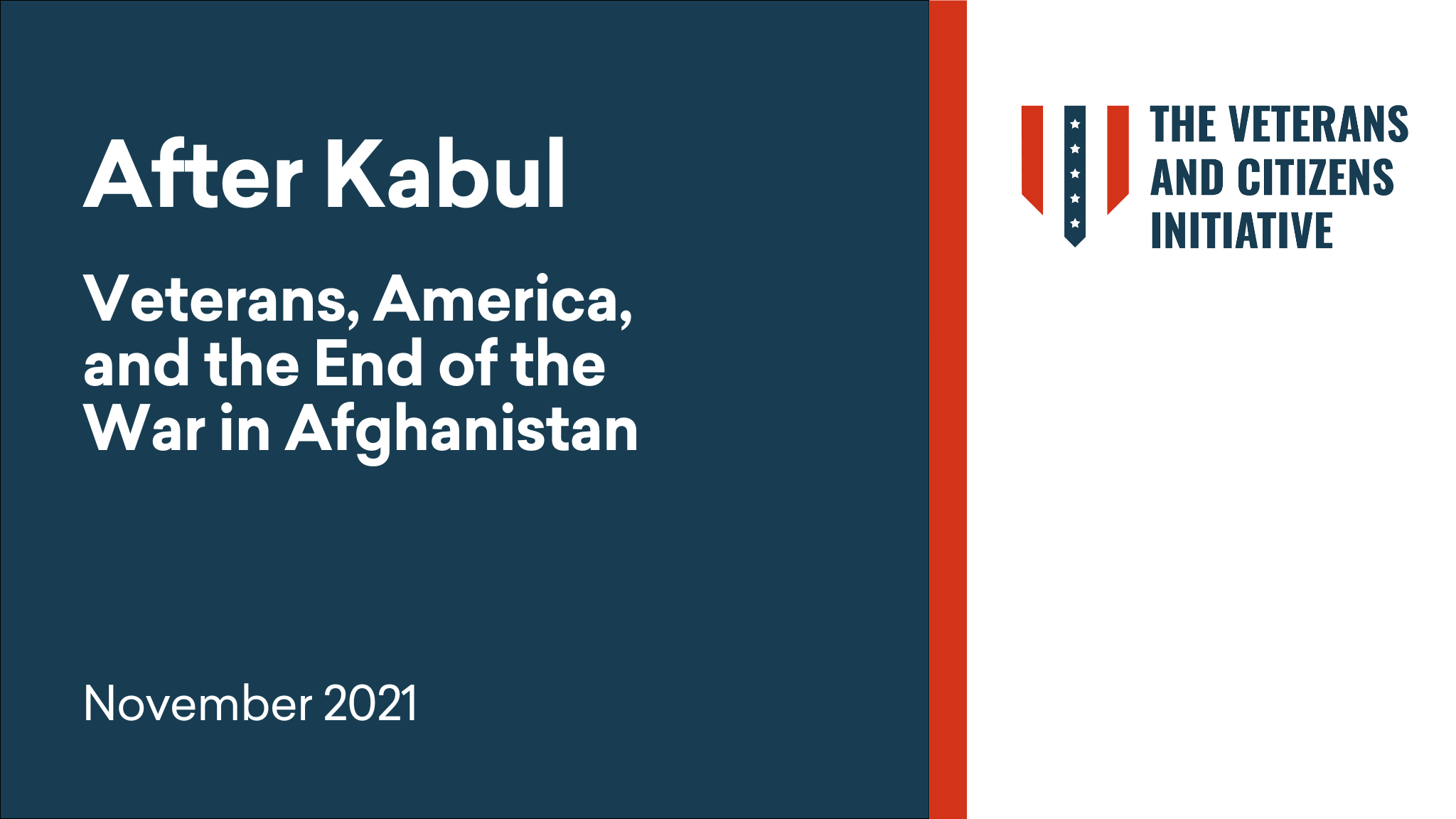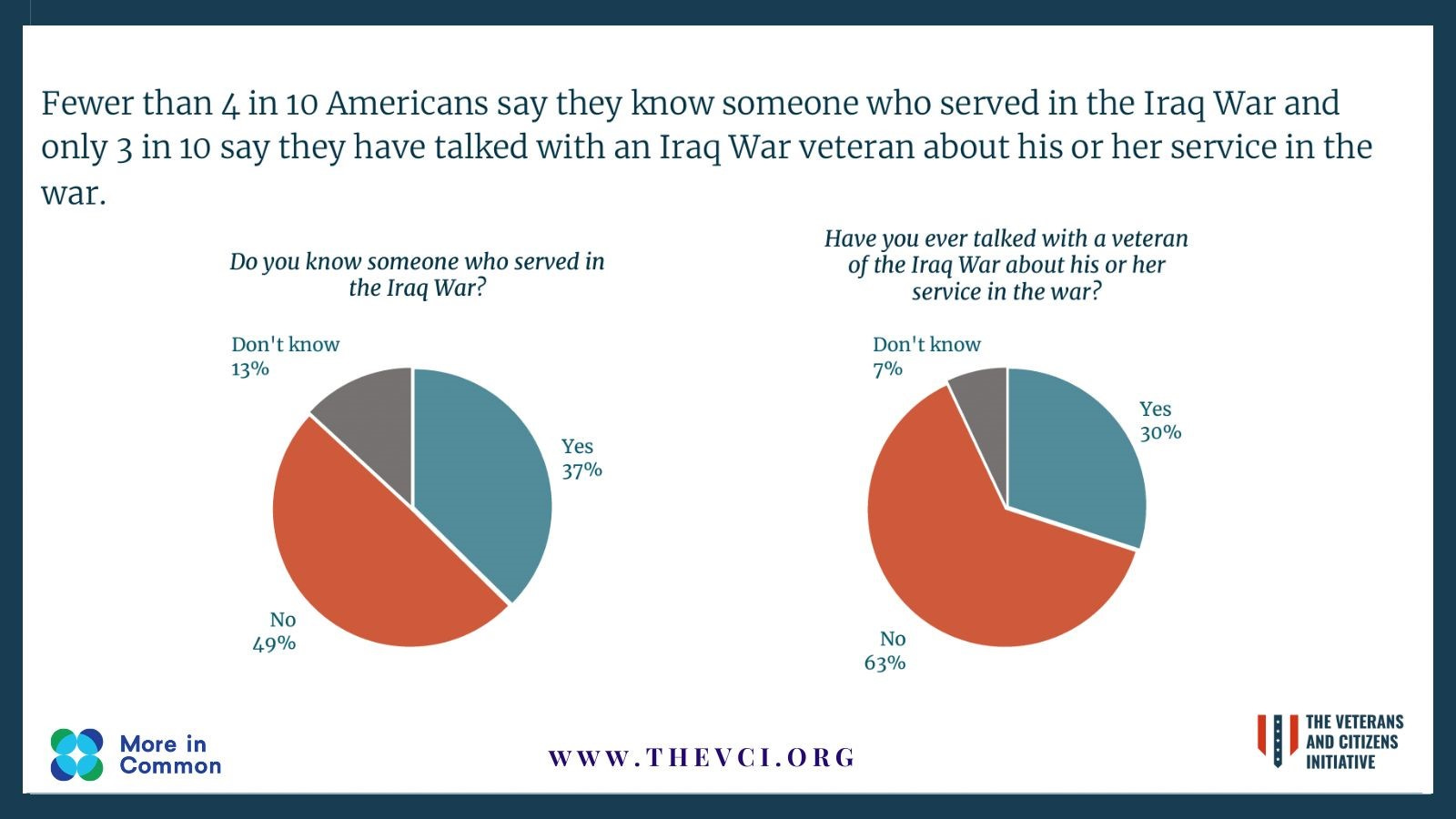
10 November 2021
February 14, 2023
Veterans and Citizens Initiative
Based on a survey of 2000 Americans, this report explores Americans’ attitudes towards and memories of the Iraq War (2003-2011). We produced this report as part of our Veterans and Citizens Initiative, to observe the 20th anniversary of the invasion of Iraq. Our goal is to help generate a greater understanding and connection between the veteran and military community and the broader society.
Polling Firm: YouGov
Sample Size: n=2,000 US Adults (nationally representative)
Fieldwork Dates: February 7-14, 2023
Margin of Error: +/- 2.2 for US avg.
of Americans say they “often” think about the Iraq War.
of Americans who feel like the Iraq War changed their lives.
of Americans believe the Iraq War was a mix of successes and failures.
The Iraq War changed America and the world, yet its fingerprints appear barely visible in the minds and memories of most Americans. Twenty years after the launch of Operation Iraqi Freedom, only 1 in 4 Americans “often” or “sometimes” think about the Iraq War and only 1 in 5 say the war changed their life. Further, when asked about major events from the war, few Americans are familiar with much beyond the invasion, capture of Saddam Hussein, and the withdrawal in 2011. These findings are stark considering the enormous costs of the war. Over 4,440 service members gave their lives and over 32,000 were wounded during the Iraq War (2003-2011), and the cost to the US Treasury was approximately $800 billion.
The picture is more complex, however 77 percent of Americans feel it is important, as individuals, to learn about the Iraq War. But Americans are hesitant about whether such learning should be done at the national level. Only 41 percent feel the country needs to do more to publicly learn from the Iraq War and 32 percent say it’s better for the country to put the Iraq War behind us and move on. Embedded in this hesitation are likely concerns that any public effort to grapple with the war will devolve into political battles to relitigate blame.
It’s easy to see how this might happen given how attributions of blame vary significantly by ideology. Democrats overwhelmingly say President George W. Bush and Secretary of Defense Donald Rumsfeld deserve most of the blame for aspects of the Iraq War that went poorly for America, whereas Republicans are most likely to assign blame to President Barack Obama. At a time when Americans are already exhausted by polarization, it’s understandable that they would be concerned about yet another partisan fight.
Yet, the costs of not doing more to learn about and from the Iraq War are even more concerning. Such costs will disproportionately be borne by soldiers on a future battlefield and by their families. Our challenge, then, is to disrupt the potential for polarization to dictate how we learn about the war as a society. Our research suggests two methods for achieving this.
First, there is overwhelming support – 69 percent – for states adopting Military History Months where schools and communities are encouraged to dedicate time to learning about American military history. By focusing on the state level, we can mitigate the hyper-polarization present at the national level and allow states to innovate and test new ways for teaching and learning about military history.
Second, we could do more to bridge veteran and military communities with the broader society. Only 3 in 10 Americans say they have talked with an Iraq War veteran about his or her service in the war. While not every veteran wants to talk about the war, nor should conversations with veterans only be about war, there is an urgent need to foster more social and community relationships with those who have served in the military. This is best done
at the state and local level, though national institutions can help provide resources to expand such efforts.


Explore the depth of our research at your fingertips. Get the complete insights by downloading the full report today.
What unites and divides Americans today? This newsletter takes a closer look at issues pressing on America’s social and political fabric and provides recommendations for how to strengthen ties to keep us bound together.